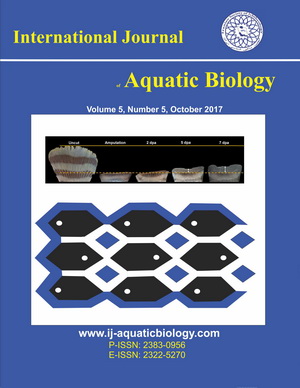Genetic variation and population structure of spottybelly greenling (Hexagrammos agrammus) in Korean coasts analyzed by DNA markers emphasizing on microsatellites
Vol. 3 No. 3 (2015): June
Articles
June 25, 2015
Downloads
Habib, K. A., Islam, M. N., Sultana, S., & Lee, Y.-H. (2015). Genetic variation and population structure of spottybelly greenling (Hexagrammos agrammus) in Korean coasts analyzed by DNA markers emphasizing on microsatellites. International Journal of Aquatic Biology, 3(3), 183–190. https://doi.org/10.22034/ijab.v3i3.96
Downloads
Download data is not yet available.








